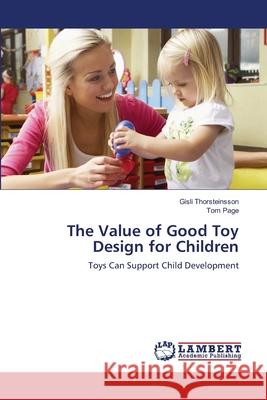The Value of Good Toy Design for Children » książka
The Value of Good Toy Design for Children
ISBN-13: 9783659172373 / Angielski / Miękka / 2012 / 64 str.
The practice of toy design and the theory behind it is studied with particular interest in the ways in which these areas contribute, if at all, to child development. The assessment of the ways in which we play and the toys we have as children with respect to its influence on adulthood will be studied. As well as literary research an interview with a senior designer is carried out. This concludes that the role of the toy designer is complex and subject to the demands of users as well as regulations. A questionnaire was given to 28 respondent ages 18- 25 years; the subject was a retrospective view of toys and their influences on the respondent's current lifestyle. The major conclusions draw from this was that toys not only influence the development of key skills, but also of the positive or negative view on our childhood. These findings show that it is important for designers to draw upon academic research, as well as undertaking their own to create influential toys of quality.
The practice of toy design and the theory behind it is studied with particular interest in the ways in which these areas contribute, if at all, to child development. The assessment of the ways in which we play and the toys we have as children with respect to its influence on adulthood will be studied. As well as literary research an interview with a senior designer is carried out. This concludes that the role of the toy designer is complex and subject to the demands of users as well as regulations. A questionnaire was given to 28 respondent ages 18- 25 years; the subject was a retrospective view of toys and their influences on the respondents current lifestyle. The major conclusions draw from this was that toys not only influence the development of key skills, but also of the positive or negative view on our childhood. These findings show that it is important for designers to draw upon academic research, as well as undertaking their own to create influential toys of quality.











